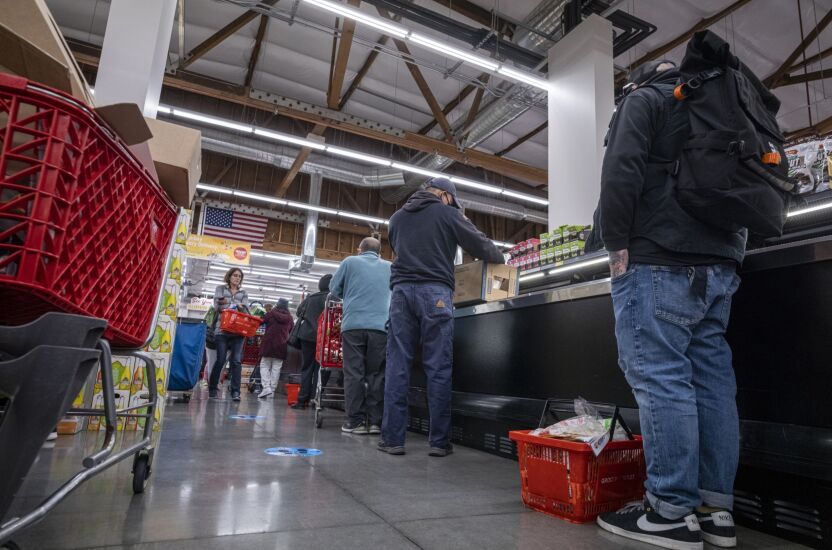WASHINGTON — Viewers can expect a raucous pair of hearings this week as lawmakers across the political spectrum prepare to grill the CEOs of the country's largest banks.
In two separate hearings scheduled for Wednesday and Thursday of this week, seven bank CEOs will appear before Congress. This year, the leaders of America's largest Wall Street banks — JPMorgan Chase, Citigroup, Bank of America, and Wells Fargo — will be joined by some of the country's largest regional banks for the first time: U.S. Bancorp, Truist Financial, and PNC Financial.
The House Financial Services Committee will get the first crack at the bankers with its Wednesday hearing led by Chair Maxine Waters, D-Calif, who first convened the now-annual affair for the first time in 2019. On Thursday, the action will shift to the Senate Banking Committee, led by Chair Sherrod Brown, D-Ohio.
The megabank CEO hearings have not historically had much of an impact on policy or legislation. But this year's hearing comes at a perilous time for the U.S. economy and broader political landscape. Inflation remains stubbornly and historically high, and supply chain disruptions still persist in the wake of COVID-19 and the war in Ukraine — all with fewer than 50 days until the 2022 midterm elections.
Even beyond high-level politics, however, the CEOs — including Jamie Dimon of JPMorgan, Jane Fraser of Citigroup, Brian Moynihan of BOFA, Charlie Scharf of Wells Fargo, William Rogers Jr. of Truist, William Demchak of PNC, and Andy Cecere of U.S. Bank — are expected to face a complicated minefield of topics on financial policy.
Democratic lawmakers will almost certainly press the CEOs on consumer affairs ranging from the reform of overdraft fees to fake accounts scandals. Republicans, meanwhile, will grill the bank leaders on the politicization of finance and the proper role of climate risk management within their institutions.
What follows is a topic-by-topic viewer's guide for this week's hearings.









